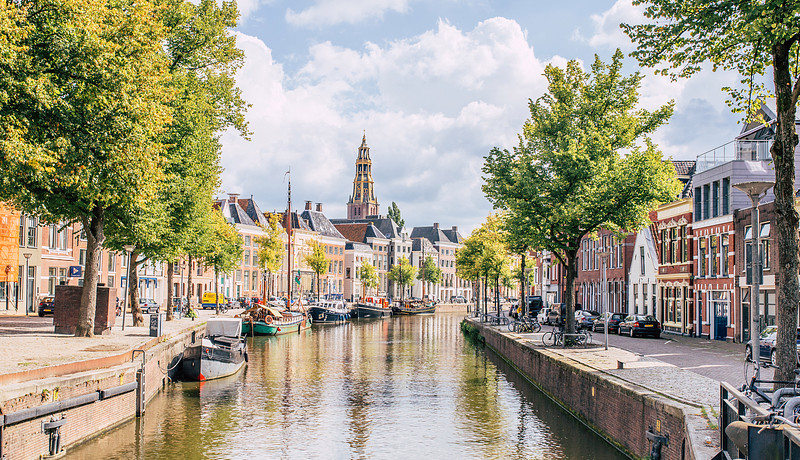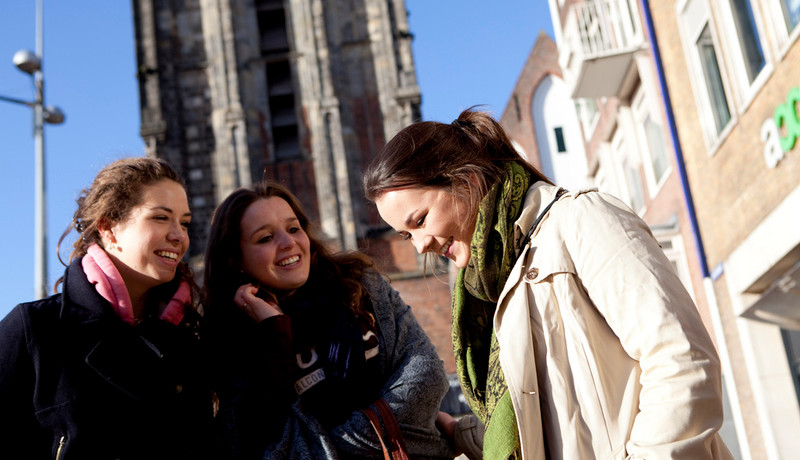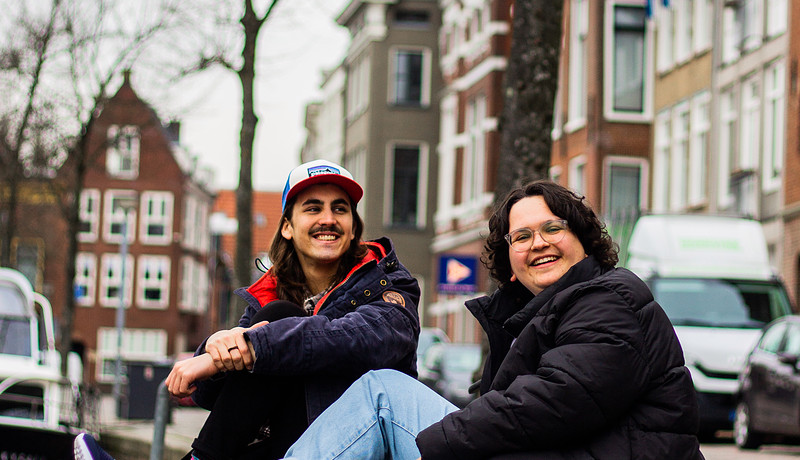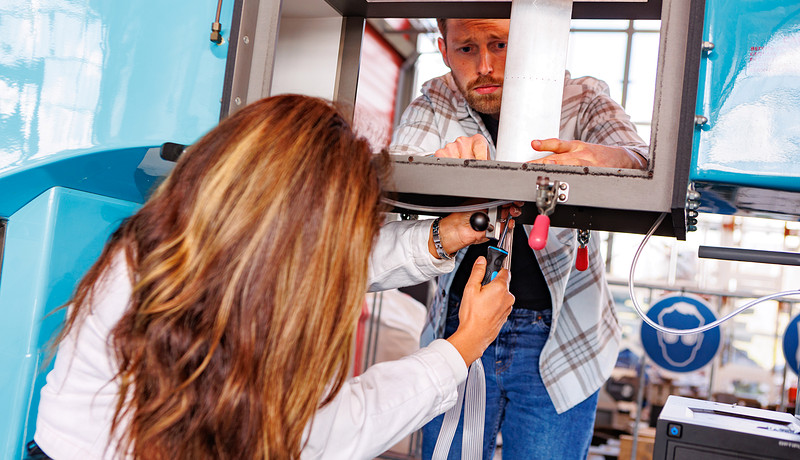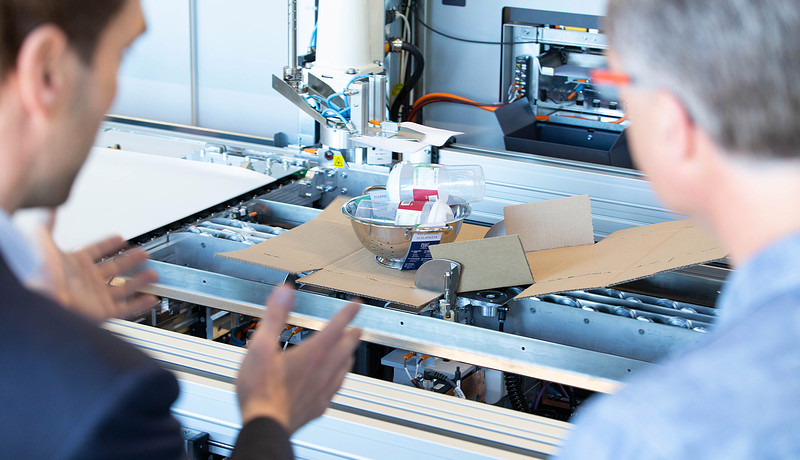The future IS Internet of Things
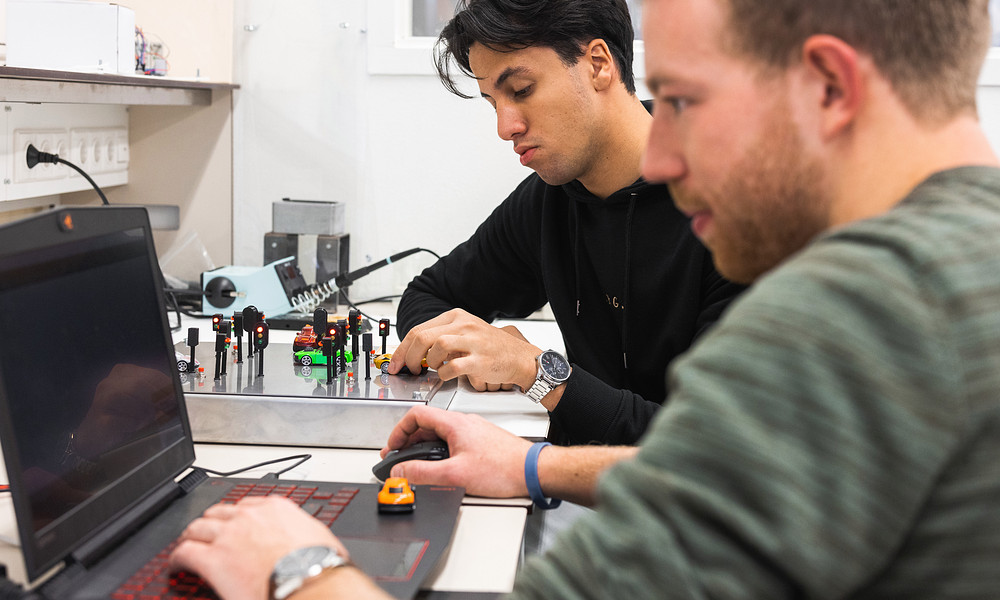
Internet of Things
- Level
- Language
- English
- Credits
- 30 ECTS
- Startmonths
- Start: September
- Locations
- Groningen
The future of IoT? The future is IoT! A world in which all our devices are connected to each other and interact and exchange data over the internet without any human intervention, where sensors are used for input. The connections extend beyond standard devices, such as desktops, laptops, smartphones and tablets, to any range of non-internet-enabled physical devices and everyday objects. These devices often need to operate in one system. So, all the IoT solutions need a well-thought-out, reliable architecture to work. The architecture is about connectivity, scalability and security.
In this programme, we will discuss the whole architecture of Smart Systems. An overview is given and various components are discussed, for example Edge Computing, Hub and Artificial Intelligence (AI). There is also a Smart Systems project in cooperation with small and medium sized enterprises and research centres. During the programme, we use the components of Microsoft Azure.
At the end of the programme you:
- have an overview of the architecture of a Smart System;
- can apply edge computing to process sensor output and actuator input;
- can connect an edge computer to the cloud;
- can store data from the edge computers into cloud databases;
- can apply Artificial Intelligence (AI) techniques to the data;
- can implement security standards in a Smart System environment;
- can apply the architecture of a Smart System in a project;
| Mandatory | |
| Project Sensors and Smart Systems | 5 |
| Internet of Things Fundamentals | 5 |
| Data Connectivity | 5 |
| Artificial Intelligence | 5 |
| Electives | |
| Introduction to Electrical Engineering | 5 |
| Introduction to Embedded Systems | 5 |
| Uncertainty in Sensor Data | 5 |
| Applied Mathematics for Smart Systems | 5 |
| Biosensing Applications | 5 |
Take a look at the ECTS course catalogue (please look at 'exchange programmes') for more information.
Students are expected to apply for the whole programme of 30 ECTS. The outline for this programme can vary from week to week. The programme is intensive and students who apply for this programme are expected to be available and present for the duration of the programme.
Before you can start
Students need to have obtained 105 ECTS credits at undergraduate level in Electrical and Electronic Engineering or Information Technology (ICT).
Admission & application
Please check with your home university whether there is an agreement set up with the Hanze School that is offering the exchange programme of your choice. To apply for and be admitted for our exchange programme you should take the following steps
-
1. Be nominated by your home university
Once you have been nominated, your nomination will be checked by us and confirmed to your home university by email. You will receive your application link during our application period.
-
2. Submit your online application
Once you have been nominated by your home university you will receive a personal application link and the application instructions during our application period. The application is fully digital and documents do not have to be send by email or postal mail. Make sure you do not miss our application deadline!
-
3. Letter of Acceptance
Once you have submitted your application we will check your documents. If you have to re-submit any documents, we will let you know. We will be sending out Acceptance Letters from the beginning of May when you start in September and from the middle of October when you start in February.
Find out more about our application process and practical matters.
Frequently Asked Questions
Contact
-
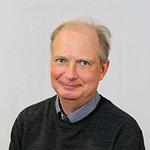
Peter Kamphuis
Docent-onderzoeker
[email protected]Zernikeplein 11, 9747 AS Groningen
